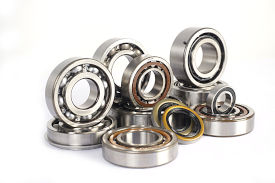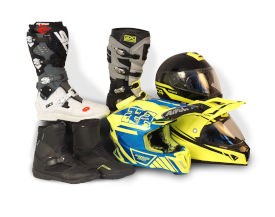Moto Morini Scrambler 1200 (2020-2022): A Modern Italian Scrambler With Substance
Introduction
The Moto Morini Scrambler 1200 isn’t just a motorcycle – it’s a statement. Born from a brand with deep Italian racing heritage, this 2020-2022 generation scrambler walks a fine line between retro charm and modern aggression. With its 1187cc V-twin engine, adjustable suspension, and rally-ready stance, it promises to be as comfortable carving canyon roads as it is kicking up dirt on fire trails. But does it deliver on that dual-purpose promise? After spending a week with this machine, here’s the unfiltered take.
Design & First Impressions
At first glance, the Scrambler 1200 commands attention with its muscular proportions. The steel trellis frame – welded using aerospace-grade TIG techniques – gives it a raw, industrial aesthetic that contrasts beautifully with the sculpted 87-degree V-twin engine. Unlike some scramblers that prioritize form over function, Morini didn’t shy away from practicality:
- Tire Choice: The Pirelli Scorpion Rally STR tires (120/70-17 front, 180/55-17 rear) strike a perfect balance between road grip and loose-surface confidence
- Ergonomics: The 830mm seat height feels accessible for most riders, while the wide handlebars and mid-set pegs create a commanding riding position
- Details Matter: Matte black finishes dominate, accented by brushed aluminum side panels and a minimalist LED tail light. The dual high-mount exhausts (with Euro 3 compliance) add visual weight to the rear
The 5” LCD dash feels modern without betraying the analog soul – a smart compromise that displays everything from gear position to lean-angle-sensitive traction control.
Engine & Performance
The Heart of the Beast
Let’s address the 1187cc elephant in the room. This liquid-cooled DOHC V-twin isn’t just about numbers, though they’re impressive:
- 116 HP @ 8,000 RPM (84.7 kW)
- 108 Nm @ 7,000 RPM (79.7 lb-ft)
- 12.2:1 compression ratio
What these specs don’t reveal is the character. From idle, there’s a purposeful lope reminiscent of Ducati’s older Testastretta engines. The fueling is crisp in “Urban” mode, but switch to “Sport” and the throttle becomes a hair-trigger – the front wheel gets light in first three gears with minimal provocation.
Key Observations:
- Power builds linearly from 3,500 RPM, hitting a ferocious midrange surge at 5,500 RPM
- The APTC slipper clutch ensures downshifts are drama-free, even during aggressive braking
- Despite the Euro 3 compliance, the exhaust note transitions from a bass-heavy purr to a snarling wail as revs climb
The 6-speed gearbox shifts with positive engagement, though the lever could benefit from a slightly shorter throw during rapid-fire gear changes.
Handling & Ride Dynamics
On Road:
With 120mm front / 110mm rear suspension travel and fully adjustable Öhlins-level hardware (Brembo brakes front/rear), the Morini devours asphalt. The 25-degree rake and 1,500mm wheelbase make for quick directional changes without sacrificing stability at triple-digit speeds.
Off Road:
The 202kg dry weight is felt in technical sections, but the wide bars and predictable torque make it manageable. Ground clearance is adequate for mild trails, though the exhaust headers could benefit from aftermarket protection during serious off-roading.
Braking:
Dual 270mm front discs with 4-piston Brembos provide immense stopping power. ABS intervention is subtle in “Off-Road” mode, allowing some rear wheel lock-up for controlled slides.
Competition
How does it stack up against key rivals?
- Ducati Scrambler 1100
- Lighter (199kg vs 202kg) but less powerful (86 HP vs 116 HP)
-
Ducati’s electronics package is more refined, but Morini offers better suspension adjustability
-
Triumph Scrambler 1200 XE
- Triumph’s 21” front wheel and longer suspension travel (200mm) dominate off-road
-
Morini counters with a $3K-$5K price advantage when new and a more engaging engine character
-
BMW R nineT Scrambler
- BMW’s boxer engine offers lower CG but less peak torque (116Nm vs 108Nm)
- Morini’s LCD dash outperforms BMW’s basic analog cluster
Verdict: The Morini sits in a sweet spot between premium pricing and authentic performance. It’s for riders who want exclusivity without compromising on modern tech.
Maintenance & Long-Term Ownership
As a MOTOPARTS.store journalist, I’d prioritize these components:
-
Chain & Sprockets
The stock 525 chain handles the torque well, but upgrading to a DID 520ERV3 chain (-0.7kg unsprung weight) improves acceleration. Pair with aluminum sprockets for off-road weight savings. -
Air Filter
The stock paper filter works, but a washable DNA foam filter (part #DNA-1200SCR) boosts airflow and suits dusty environments. -
Brake Pads
Brembo’s SA sintered pads (front: BPF30/SA, rear: BPF20/SA) offer better bite than stock organic compounds, especially when towing or riding two-up. -
Suspension Upgrades
While the adjustable forks/shock are competent, replacing fork oil with Motul 5W Factory Line (every 15,000km/9,320mi) maintains plushness. -
Exhaust Wrap
Thermal wrapping the front header (using DEI Titanium Wrap) reduces leg heat during slow-speed trail riding.
Pro Tip: The engine’s longitudinal layout makes valve adjustments (every 12,000km/7,450mi) more accessible than transverse twins. Keep shim kits (MoroShim-4V) handy.
Conclusion
The Moto Morini Scrambler 1200 isn’t trying to be everything to everyone – and that’s its strength. It’s a unapologetically bold machine that blends Italian passion with genuine capability. While the 2020-2022 models are no longer new, their combination of accessible tech, brutal V-twin performance, and rugged aesthetics ensures they’ll age like a fine Chianti.
For MOTOPARTS.store shoppers, this platform offers endless customization potential – whether you’re chasing café racer minimalism or building a Dakar-inspired rally weapon. Just don’t blame us when your weekend errands turn into 200km detours through the nearest mountain pass.
Specifications sheet
| Engine | |
|---|---|
| Stroke: | Four-stroke |
| Max power: | 85 kW | 114.0 hp |
| Max torque: | 108 Nm |
| Fuel system: | Injection |
| Max power @: | 8000 rpm |
| Displacement: | 1187 ccm |
| Max torque @: | 7000 rpm |
| Bore x stroke: | 107.0 x 66.0 mm (4.2 x 2.6 in) |
| Configuration: | V |
| Cooling system: | Liquid |
| Engine details: | 87-degree longitudinal V-twin |
| Compression ratio: | 12.2:1 |
| Emission standards: | Euro 3 |
| Number of cylinders: | 2 |
| Valves per cylinder: | 4 |
| Features | |
|---|---|
| ABS: | Standard |
| Instruments: | 5” Full LCD with multi-window configuration |
| Color options: | Black |
| Exhaust system: | Double muffler, 3-way catalyst, lambda probe |
| Factory warranty: | 3 years |
| Dimensions | |
|---|---|
| Wheelbase: | 1500 mm (59.1 in) |
| Dry weight: | 202 |
| Seat height: | 830 mm (32.7 in) |
| Overall width: | 930 mm (36.6 in) |
| Overall height: | 1160 mm (45.7 in) |
| Overall length: | 2120 mm (83.5 in) |
| Power/weight ratio: | 0.5743 HP/kg |
| Drivetrain | |
|---|---|
| Clutch: | Multi-disc wet slipper clutch (APTC) |
| Final drive: | chain |
| Transmission: | 6-speed |
| Maintenance | |
|---|---|
| Brake fluid: | DOT 4 |
| Spark plugs: | Not specified (4 valves per cylinder) |
| Valve clearance check interval: | Not specified in data |
| Wheels and Tires | |
|---|---|
| Rear tire: | 180/55-17 |
| Front tire: | 120/70-17 |
| Tire brand/model: | Pirelli Scorpion Rally STR |
| Chassis and Suspension | |
|---|---|
| Frame: | Steel 25CrMo4 trellis, welded with TIG technology |
| Trail: | 110 mm (4.3 in) |
| Rear brakes: | Single 270 mm disc, 2-piston Brembo caliper, ABS |
| Front brakes: | Double 270 mm discs, 4-piston Brembo calipers, ABS |
| Rear suspension: | Single shock with progressive linkage, fully adjustable (preload, rebound) |
| Front suspension: | Ø 46 mm Upside-down telescopic fork, fully adjustable (preload, compression, rebound) |
| Rake (fork angle): | 25.0° |
| Rear wheel travel: | 110 mm (4.3 in) |
| Front wheel travel: | 120 mm (4.7 in) |


















